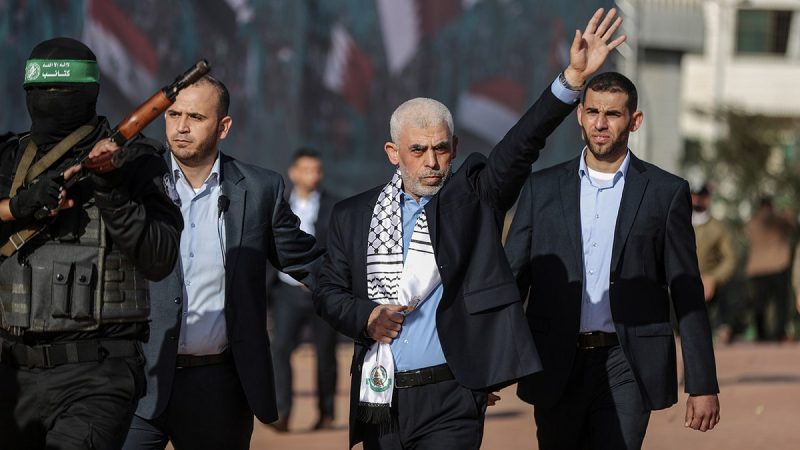Amidst ongoing tensions in the Middle East, the recent emergence of a new Hamas political leader has raised concerns in Israel. The individual in question is believed to have been involved in the planning of a devastating attack on October 7th – an incident that resulted in multiple casualties.
According to reports, the Israeli government has vowed to take swift action against this individual, with statements indicating their intent to eliminate the new Hamas leader. The decision to target the political figure has been met with mixed reactions both domestically and internationally.
The incident has once again highlighted the complex geopolitical landscape of the region and the perpetual conflicts that have plagued it for decades. The longstanding animosity between Israel and Hamas has often led to violence and bloodshed, further exacerbating tensions and hindering prospects for peace.
In response to the Israeli government’s threat, Hamas has issued statements condemning the alleged plan to target their new political leader. The militant group has vowed to retaliate against any aggression, signaling the potential for further escalation in the already volatile region.
The situation underscores the challenges of diplomacy and conflict resolution in a region marked by deep-rooted historical grievances and competing national interests. The emergence of new leadership within Hamas adds another layer of complexity to an already precarious situation, raising questions about the group’s future direction and its impact on regional stability.
As the international community closely monitors developments in the Middle East, the need for dialogue, cooperation, and de-escalation becomes more pressing than ever. The latest episode serves as a stark reminder of the urgent need for a comprehensive and inclusive approach to addressing the underlying issues that fuel conflicts in the region.
While the fate of the new Hamas political leader remains uncertain, one thing is clear – the region’s path to peace and stability is fraught with challenges that require concerted efforts and genuine commitment from all parties involved. Only through dialogue, mutual respect, and a shared commitment to peaceful coexistence can the cycle of violence be broken, paving the way for a more secure and prosperous future for all inhabitants of the Middle East.

